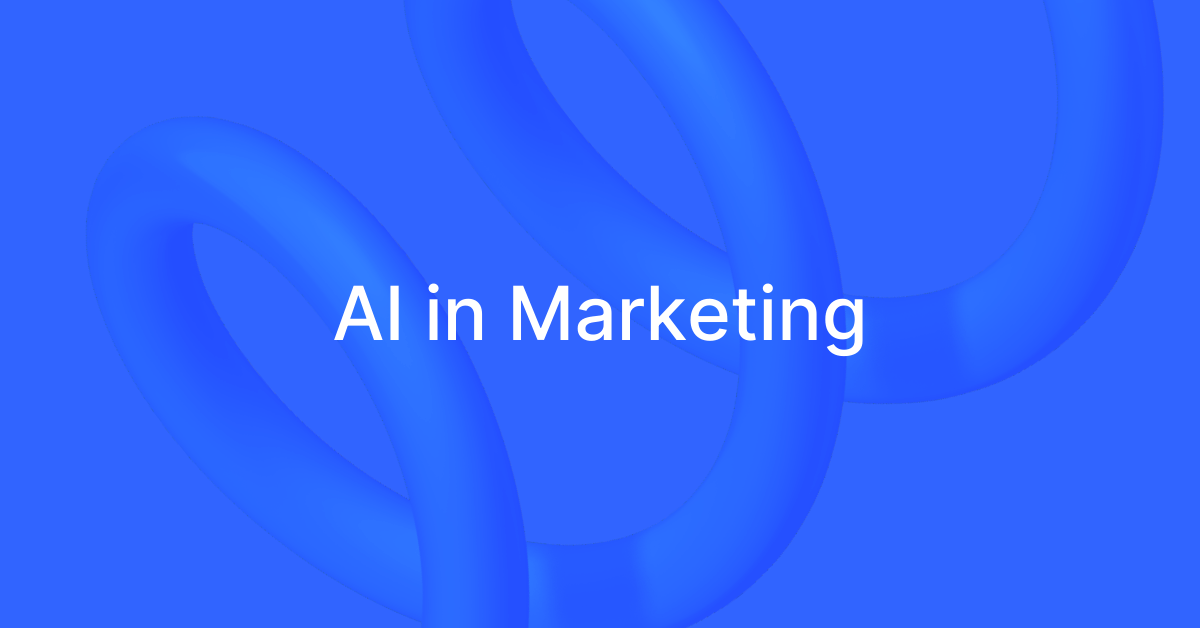
AI in Marketing: Examples, Strategies & Future Trends
Record, transcribe and summarize conversations with one click.
Gone are the days when traditional marketing strategies helped your brand stand out. Changes in consumer behavior and the speed of technological innovation are driving businesses to either reinvent or become obsolete.
To succeed in this new landscape, you must incorporate AI into your tech stack. But where do you start?
Join me as we expound on how you can use AI in marketing. We will explore real-world AI in marketing examples and provide actionable tips on how you can design an AI strategy. Let's get started.
How is AI used in marketing?
To use AI in your business, you need to understand why you are using it. AI excels in marketing due to its ability to:
Analyze data faster and identify patterns that would be difficult to spot. To gain a competitive advantage, join the 70% of firms leveraging data to make better decisions.
Personalize content on a large scale. According to McKinsey, content personalization is essential to 71% of consumers.
Forecast changes in consumer behavior. To best serve your customers, you need to understand their ever-changing needs, a task that Walmatt’s top executives say will be very difficult to do without help in the coming years.
Improve efficiency by eliminating repetitive work. According to Adquadrant, streamlining your processes with automation tools can help increase your marketing ROI by 20%.
Improve customer engagement and satisfaction. AI tools like chatbots can handle simple tasks such as inquiries and provide recommendations allowing human agents to focus on complex tasks.
The impact of AI on marketing
The main activities in marketing revolve around identifying customers, understanding what they need, matching them to what they want, recommending products they may need, and persuading them to buy.
For a long time, we have been using conventional marketing strategies that rely on broad and general approaches or what we call, ‘educated guesswork.’
AI changes all that by introducing precision. It is marketing's Swiss army knife- it can optimize your entire marketing and sales journey.
In the awareness stage, you can use AI to find your right audience, predict their interests, and personalize content at scale. During the consideration stage, AI can help you further understand your audience's needs and provide them with the most suitable product/service recommendation.
At the decision-making stage, AI can help you identify the leads with the highest potential to buy and help you adjust your prices in real-time. During the retention stage, AI can help you determine the customers at risk of churning and help you develop targeted retention campaigns.
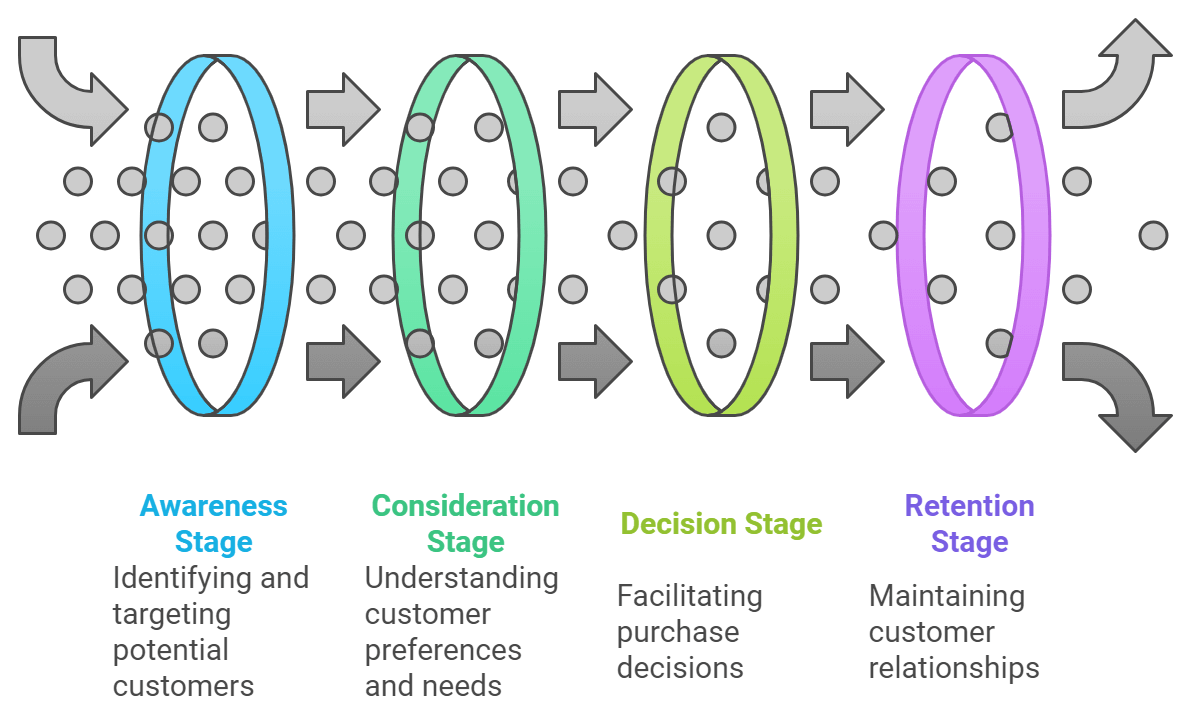
Depending on the type of work and freedom you want, you can fully or semi-automate your business. I advise using semi-automated marketing AI tools to control the entire process.
Remember, incorporating AI in digital marketing is not about replacing human creativity. It's about augmenting it and giving your business a strategic advantage. Be open to AI's possibilities, but be realistic about its capabilities.
Best examples of AI in marketing
By analyzing the results from the firms leading the way, we can establish significant benefits of AI in marketing. Here are three inspiring real-world companies making waves by using AI to streamline their marketing efforts. These examples will help you understand the diverse applications of AI in marketing and give you ideas on how to use it in your business.
1. Sephora
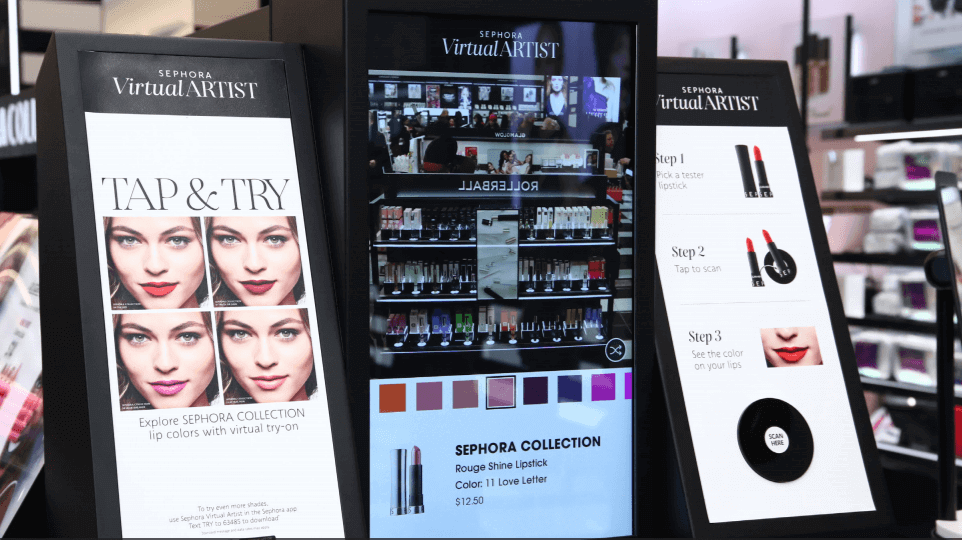
Sephora began integrating AI into its marketing as early as 2015 when it launched its innovation hub. They aimed to improve their in-store and online customer experience by innovating on personalization.
They partnered with ModiFace to develop Virtual Artist, an AI feature that allows customers to try different shades of makeup virtually. This feature uses advanced image recognition and machine learning algorithms to match shades and provide product recommendations accurately.
Sephora's investment in customer satisfaction through personalized experiences with the help of AI has been very successful and inspiring to other brands in the industry. This move has allowed the brand to thrive during a time of decline in the retail sector. In fact, between 2016 and 2022, the brand grew its E-commerce net sales by fourfold, from $580 million to $3 billion.
2. Mastercard

A 2023 social media report by NetBase Quid on more than 2000 companies in 14 major industries suggests that businesses are struggling to engage their consumers. Mastercard introduced its proprietary AI digital engine to avoid this trap by creating relevant, personalized content that meets consumers' interests.
The digital engine analyzes billions of online chats to identify trending topics in real-time.
The AI then cross-references the result to Mastercard's topics of interest and customer data. Once it identifies good topics before they peak, it notifies the marketing team, which decides when and how to engage. Mastercard uses these micro trends to:
Tailor their offers according to specific customer preferences and behavior.
Deploy efficient AI marketing campaigns in minutes.
Refine and improve their future marketing efforts with the valuable insights they get from consumer behavior.
Ensure the content they deliver is always on-brand, meaningful, and authentic.
3. Heinz Ketchup
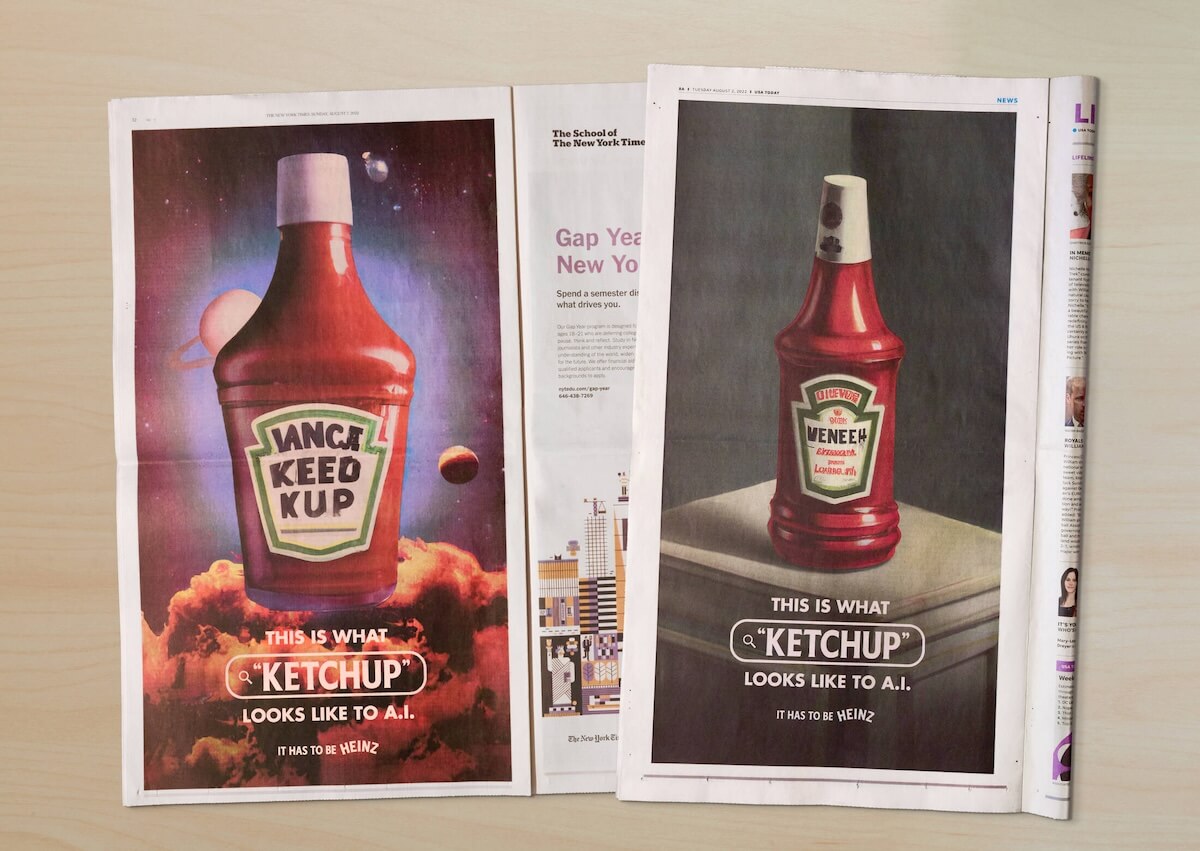
Heinz Ketchup innovatively used AI in a marketing campaign to ensure their 153-year-old business remains fresh and relevant to younger audiences. And they did it effortlessly. While people were creating wild images on the new text-to-image generators, taking the world by storm, Heinz saw an opportunity to ride the wave and make themselves relatable to everyone.
Heinz turned to Dalle-2 and only used the prompt 'Ketchup.' The result was an uncanny replica of the Heinz bottle. Even with weirder prompt suggestions of Ketchup, the AI seemingly could only generate images that resembled the Ketchup bottle.
Heinz compiled these images and created a campaign that made the Heinz bottle appear so iconic that even image generators realized this and had to copy it. This campaign led to over 850M global impressions and an increase in engagement by 38%, much higher than in past campaigns.
Notta offers the most integrated AI meeting notes, summaries, and action items so nothing gets missed.
Tips to design an AI marketing strategy
When choosing the tools to incorporate into your AI marketing strategy, you need to consider the following:
Experience with AI- Use simple rule-based applications if your firm has limited AI experience. For example, you can use a stand-alone automation app to enhance your team's efficiency while introducing them to AI. With enough experience, slowly introduce them to hybrid systems (that combine machine learning and task automation), working your way toward a fully integrated AI system for maximum value.
Business goals - What do you want to achieve? From improving team efficiency to increasing conversion and sales, your goals will guide your tool selection.
Cost vs. ROI - How much are you willing to spend on AI for marketing? The benefits you gain from using the tools you choose should outweigh the cost of the platforms.
Data quality and availability: AI requires a lot of data to generate insights and make predictions. Marketers should constantly look for new, high-quality data sources that AI can use for analysis.
Choosing your AI tools: Once you have a clear idea of your goals and where to use AI, your next step is to identify the right tools. To do so, consider their ease of use, compatibility with your existing systems, and level of data security.
Implementing your AI tools: Gradually implement one or two tools as you train your team to use them effectively. While at it, continuously monitor and evaluate the performance of your new AI tools and make adjustments to improve your overall efficiency.
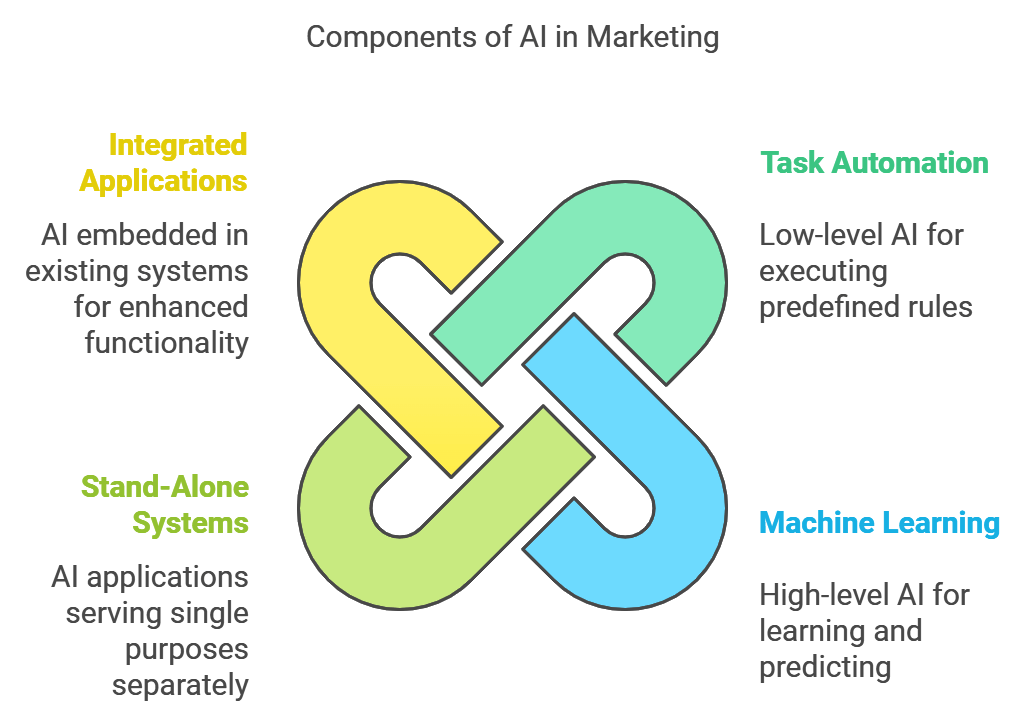
4 useful AI tools for marketing
Now that you understand what to consider when creating an AI marketing strategy, here are some tools to get you started.
1. Notta -The meeting notetaker every marketer needs
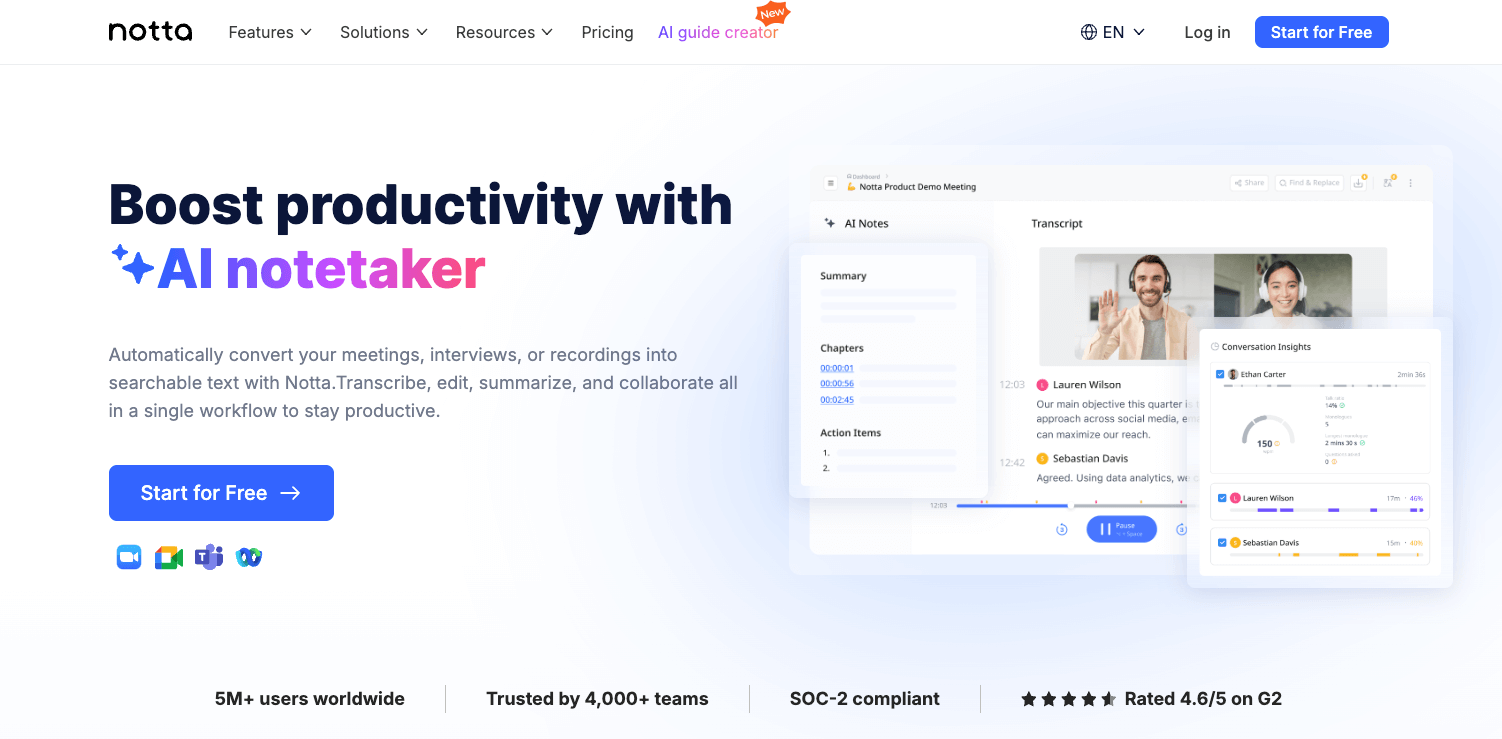
Notta is an AI-powered meeting note-taking app that can help you streamline your meeting documentation. It integrates with platforms like Microsoft Teams, Webex, Google Meet, and Zoom to make online and in-person meetings more efficient.
You don't have to worry about losing information or not being fully present in your meeting. Notta uses AI to record and accurately transcribe your meeting, generating a comprehensive summary that is easy to go through and ready to share with the right stakeholders.
If you can't attend a scheduled meeting, Notta's AI bot will do that instead and provide you with a clear transcript and summary of the meeting that you can review later.
Moreover, the platform saves all your meetings in one place, making it easy for marketers to analyze brainstorming sessions or customer interviews more effectively. Start using Notta today, and give your clients the attention they deserve while still keeping track of the critical information from all your meetings.
Notta AI meeting assistant records, transcribes, and summarizes meetings so everyone can stay engaged without missing important details.
2. Albert AI - The autonomous AI marketing strategist
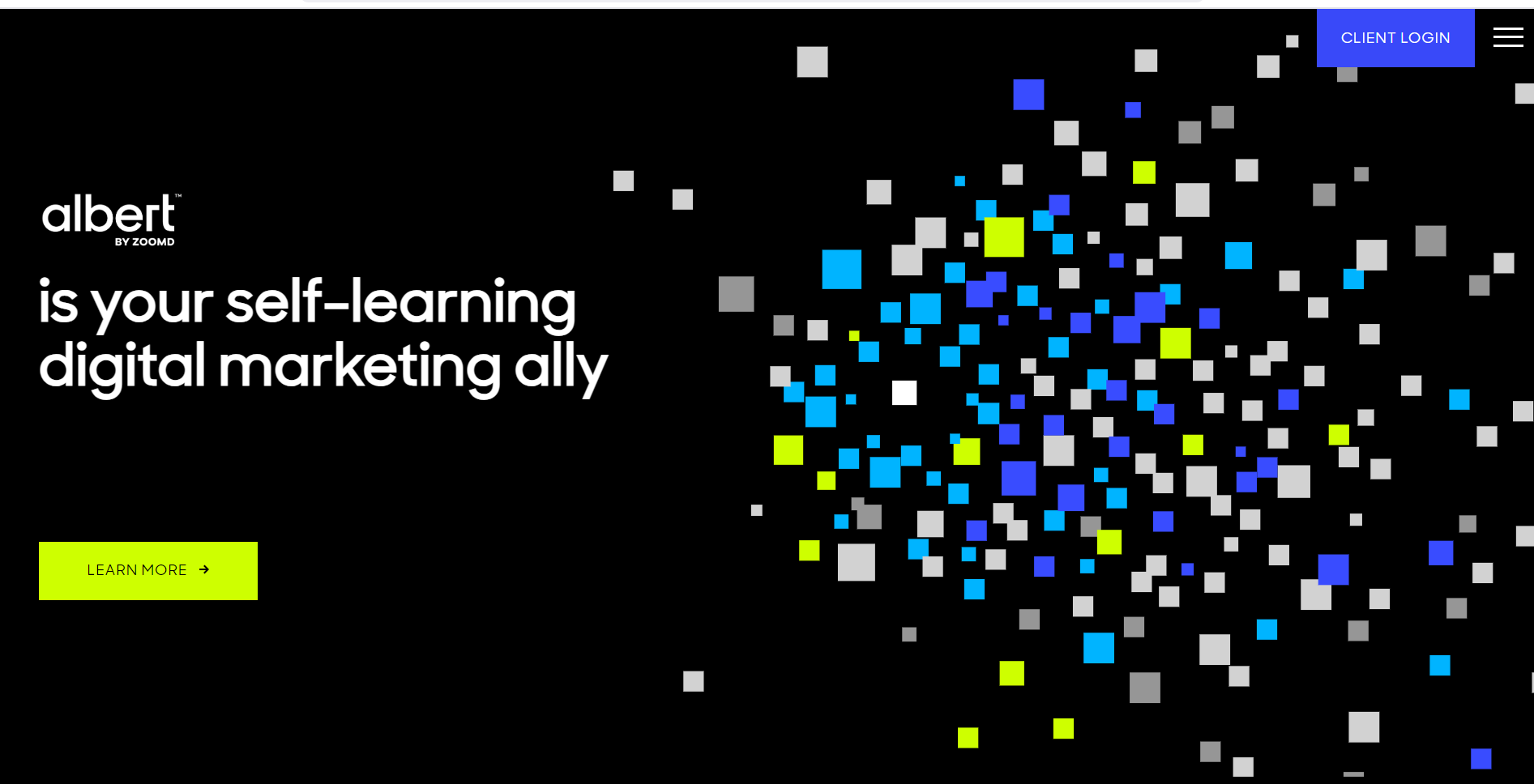
Albert AI may be the digital ally you need to run your marketing campaigns. It is a cloud-based AI you can integrate into your existing marketing tech stack to optimize your marketing efforts.
Alber AI analyzes big data to identify ways to improve your marketing strategy, efficiency, and intelligence. The AI is autonomous, meaning it can operate campaigns across your various socials, allocate budgets, and assign content accordingly.
It does this after conducting numerous tests on your campaigns and refining them to provide you with the best results based on data. Brands such as Harley-Davidson have mainly benefited from using this platform, as it contributed to 40% of their New York sales. You, too, can include this AI in your tech stack to enhance your digital marketing efforts and help you grow your ROI.
3. Adcreative.ai - Your AI-powered ad designer
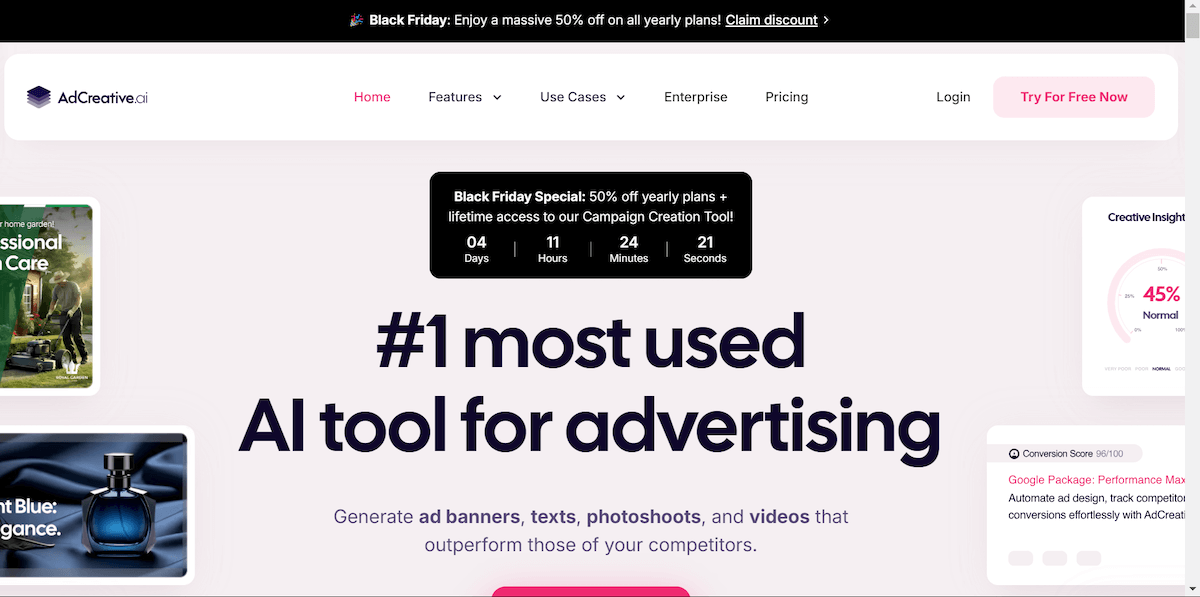
Adcreative.ai is a tool that uses algorithms to create high-performing visuals for your business. The AI analyzes your data and that of your competitors to generate digital assets backed by data.
They claim that their ad creatives can help you achieve 14 times better performance than other images. Moreover, it provides you with real-time analytics you can use to monitor the performance of your ads and make improvements.
Ad creatives can significantly influence consumer's purchase intentions. According to Nielsen, it contributes to 47% of a brand's sales lift.
Adding this AI to your marketing tool stack can help you scale your marketing efforts at a low cost (by cutting down the need for more designers) while improving your conversation rates and ROI for ad spend.
4. RunwayML - The leading generative AI for marketers
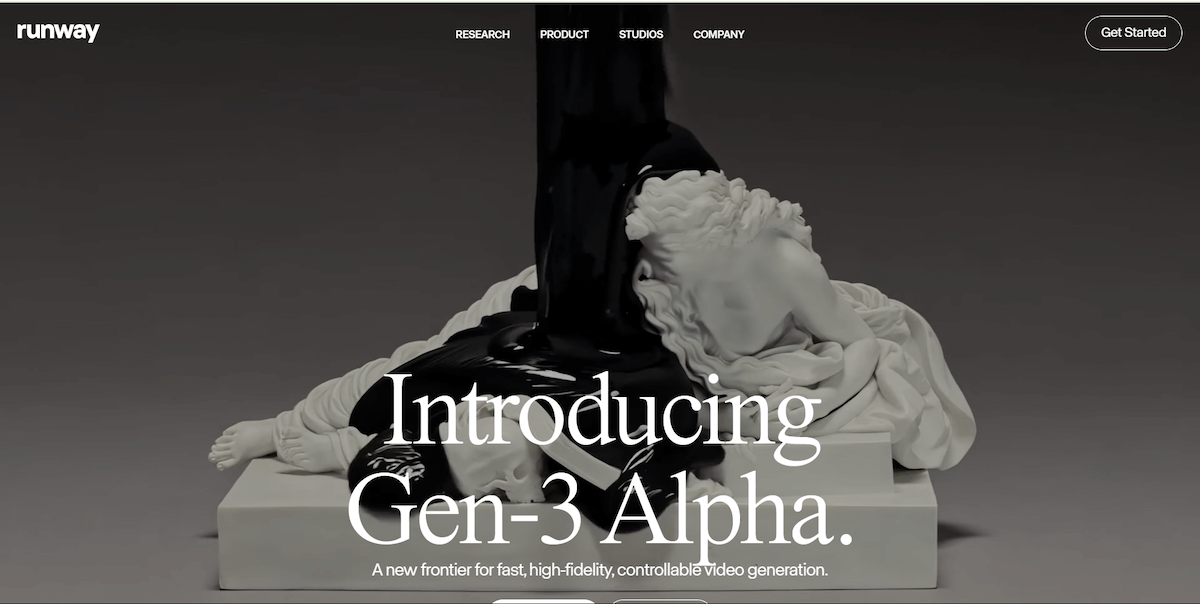 RunwayML is a text-to-video generation tool that can help professionals generate videos that would take hours to edit within seconds.
RunwayML is a text-to-video generation tool that can help professionals generate videos that would take hours to edit within seconds.
It offers groundbreaking capabilities that marketers can use to experiment, explore, and expand their storytelling without any limitations. You don't need any design skills to use the platform; give it a prompt, and the AI will generate your video.
It also has key features that allow you to change visual elements in a video, generate complex animations and visuals, and produce content variations for testing.
By integrating this AI into your marketing strategy, you can quickly create marketing assets at a low cost, experiment with new visual ideas, and make your ads more engaging.
Watch how Laslo Gaal created a prototype Volvo ad using RunwayML and After Effects below for reference.
Challenges of implementing AI in marketing
While AI presents many opportunities to elevate your marketing efforts, it has some challenges and risks. For example, using it may require you to invest in upskilling your team, especially when introducing highly sophisticated AI tools in your workflow.
You must also ensure it's well integrated into your system to avoid instances where the AI doesn't work as intended. With time, you also need to pay close attention to rising issues such as privacy concerns, customer security, and the ownership and management of client data.
Customers can be sensitive about using tools that capture or share their private information without their knowledge. You can, however, navigate this by being transparent to your customers on how you use your data.
Additionally, staying compliant with all global and local regulations can help you maintain consumer trust.
The future trends of marketing with AI
In the modern advertising landscape, being creative and strategic alone will not cut it. While that could work during the Mad Men era of advertising, modern times require you to embrace technology to stand out through the noise.
AI is currently the best bet. It's not just a passing trend—it's a technological revolution that is here to stay. Numerous marketing teams worldwide are already benefiting from its use.
Expert data shows that by 2030, this market will hit a staggering $1,339 billion, with new tools launching every day. Don't be left behind. Be an intelligent marketer and stand ahead by leveraging AI to improve your marketing efforts.